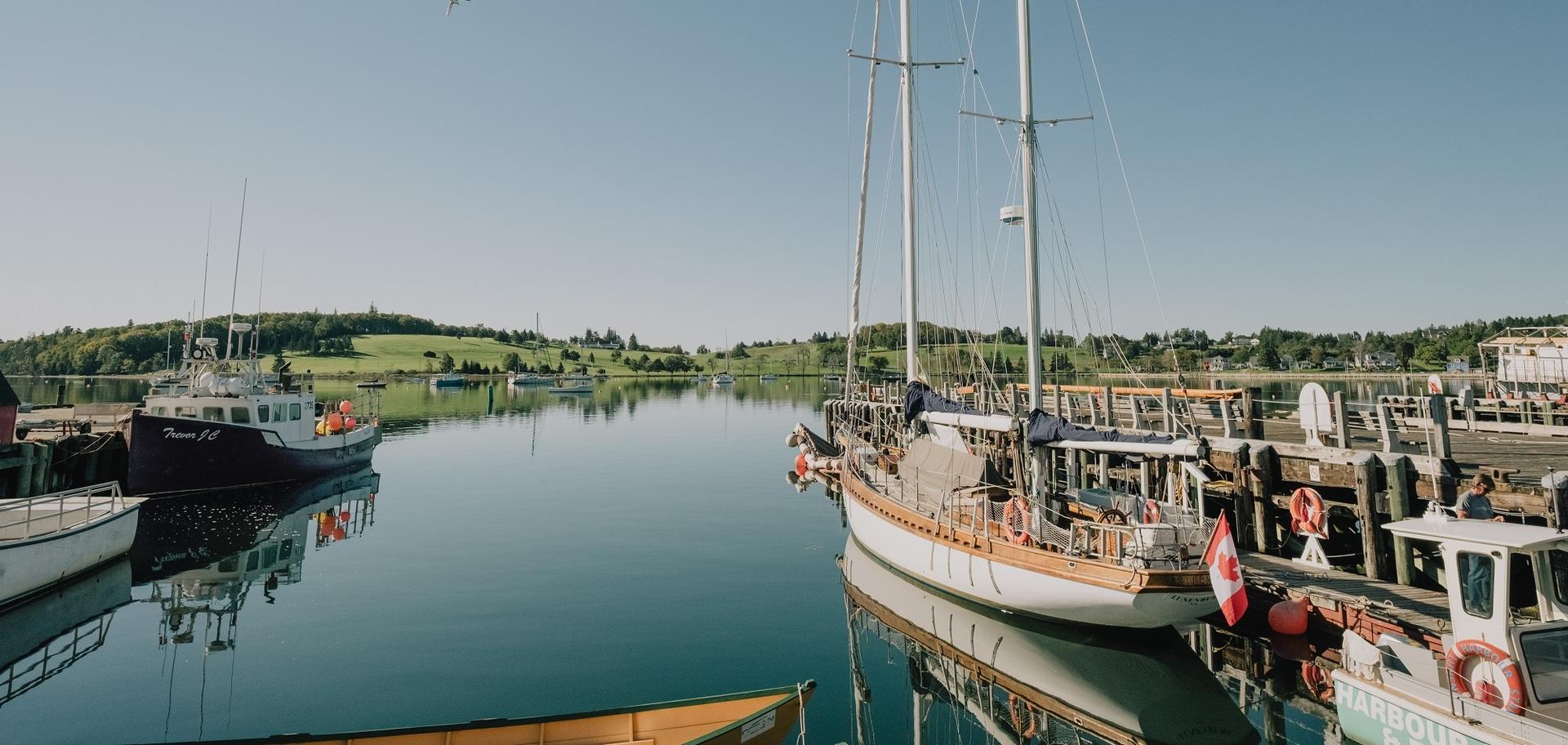Tourism Corridor Strategy Program
Destination Canada's Tourism Corridor Strategy Program aims to accelerate the intentional development of tourism corridors or clusters of tourism assets across Canada.
Destination Canada's Tourism Corridor Strategy Program aims to accelerate the intentional development of tourism corridors or clusters of tourism assets across Canada.
2024-2025 Corridor Program
Following a comprehensive review process, Destination Canada has selected four high-potential tourism corridors to support for 2024-2025. The selected projects include:
Cycle Ontario and Quebec: This corridor connects existing and new cycling routes between Ottawa, Montreal and Cornwall. It aims to create a vibrant four-season, sustainable, and inclusive cycling tourism corridor that celebrates the unique cultural and natural heritage of the region, while providing economic, environmental and social benefits. The corridor features the Rideau Canal, a UNESCO World Heritage Site, and offers visitors a variety of attractions and local businesses, such as wineries, breweries, artisans, culinary, Indigenous tourism experiences, and agritourism.
Field to Fork: SK MB Agritourism: Agriculture is the cornerstone of the Saskatchewan and Manitoba economies, serving as the foundation for a burgeoning agritourism sector with vast potential. This corridor leverages the expertise and assets of Manitoba and Saskatchewan, building on their agricultural industry that already drives significant business and leisure travel. Existing agritourism experiences such as farm stays, festivals, farmers’ markets, farm-to-table culinary dining, Indigenous agritourism, breweries, and distilleries, aim to diversify their focus on meeting local needs to driving increased short and long-haul visitation.
Juan de Fuca Corridor: Embracing both sides of the Juan de Fuca Strait, and crossing the international border between Canada and the United States, this coastal corridor project will build upon efforts to date to facilitate timely dialogue, participative collaboration, and a joined-up approach to the planning, development, and management of a visitor economy that is focused on enhancing the well-being of this region’s distinctive communities, safeguarding the integrity of its abundant yet fragile natural ecosystems, and raising awareness of the historical and contemporary relevance of a territorial and cultural coherence that dates back many thousands of years.
Northern Sky Corridor: This corridor connects Indigenous cultures and experiences from Edmonton Alberta across the provincial and territorial boundary to the Northwest Territories, linking art, history, and experiences with the expansive natural beauty, skywatching opportunities, land-based nature, and Indigenous tourism. This corridor will offer an epic road trip through the stunning landscapes of northern Canada and. aim to identify product gaps, explore transportation partnerships, and assess infrastructure needs to support the creation of new export-ready itineraries.
Following a comprehensive review process, Destination Canada has selected four high-potential tourism corridors to support for 2024-2025. The selected projects include:
Cycle Ontario and Quebec: This corridor connects existing and new cycling routes between Ottawa, Montreal and Cornwall. It aims to create a vibrant four-season, sustainable, and inclusive cycling tourism corridor that celebrates the unique cultural and natural heritage of the region, while providing economic, environmental and social benefits. The corridor features the Rideau Canal, a UNESCO World Heritage Site, and offers visitors a variety of attractions and local businesses, such as wineries, breweries, artisans, culinary, Indigenous tourism experiences, and agritourism.
Field to Fork: SK MB Agritourism: Agriculture is the cornerstone of the Saskatchewan and Manitoba economies, serving as the foundation for a burgeoning agritourism sector with vast potential. This corridor leverages the expertise and assets of Manitoba and Saskatchewan, building on their agricultural industry that already drives significant business and leisure travel. Existing agritourism experiences such as farm stays, festivals, farmers’ markets, farm-to-table culinary dining, Indigenous agritourism, breweries, and distilleries, aim to diversify their focus on meeting local needs to driving increased short and long-haul visitation.
Juan de Fuca Corridor: Embracing both sides of the Juan de Fuca Strait, and crossing the international border between Canada and the United States, this coastal corridor project will build upon efforts to date to facilitate timely dialogue, participative collaboration, and a joined-up approach to the planning, development, and management of a visitor economy that is focused on enhancing the well-being of this region’s distinctive communities, safeguarding the integrity of its abundant yet fragile natural ecosystems, and raising awareness of the historical and contemporary relevance of a territorial and cultural coherence that dates back many thousands of years.
Northern Sky Corridor: This corridor connects Indigenous cultures and experiences from Edmonton Alberta across the provincial and territorial boundary to the Northwest Territories, linking art, history, and experiences with the expansive natural beauty, skywatching opportunities, land-based nature, and Indigenous tourism. This corridor will offer an epic road trip through the stunning landscapes of northern Canada and. aim to identify product gaps, explore transportation partnerships, and assess infrastructure needs to support the creation of new export-ready itineraries.
Resources
If you're curious to learn more, check out the additional resources available on the Tourism Corridor Strategy Program.
Here you will find a detailed program overview, FAQs, timeline and link to the submission form.
2023 Corridor Projects
In 2023, Destination Canada worked with three tourism corridors to develop strategic plans. These strategies not only reflect the collaborative efforts of partners across multiple regions with unique aspirations, but they also set the stage for the sustainable and inclusive growth of Canada's tourism sector.
They serve as dynamic, evolving blueprints and foundational starting points for the development of these corridors and distill the key recommendations. The implementation of these strategies will be dependent upon alignment of priorities, the availability of resources, and continued collaboration among corridor partners and stakeholders.
Atlantic Canada UNESCO Tourism Corridor
Atlantic Canada UNESCO Tourism Corridor Strategy Summary
Northern Indigenous Tourism Lodge Network
Northern Indigenous Tourism Lodge Network Strategy Summary
Sustainable Journeys from Prairies to Pacific
Sustainable Journeys from Prairies to Pacific Strategy Summary
Contact Us
If you have any questions, please feel free to reach out to either Erica or Jennifer for further details.
Eastern Region
Ontario, Quebec, Nova Scotia, Newfoundland and Labrador, New Brunswick and Prince Edward Island
Western and Northern Region
British Columbia, Alberta, Saskatchewan, Manitoba, Yukon, Northwest Territories and Nunavut
